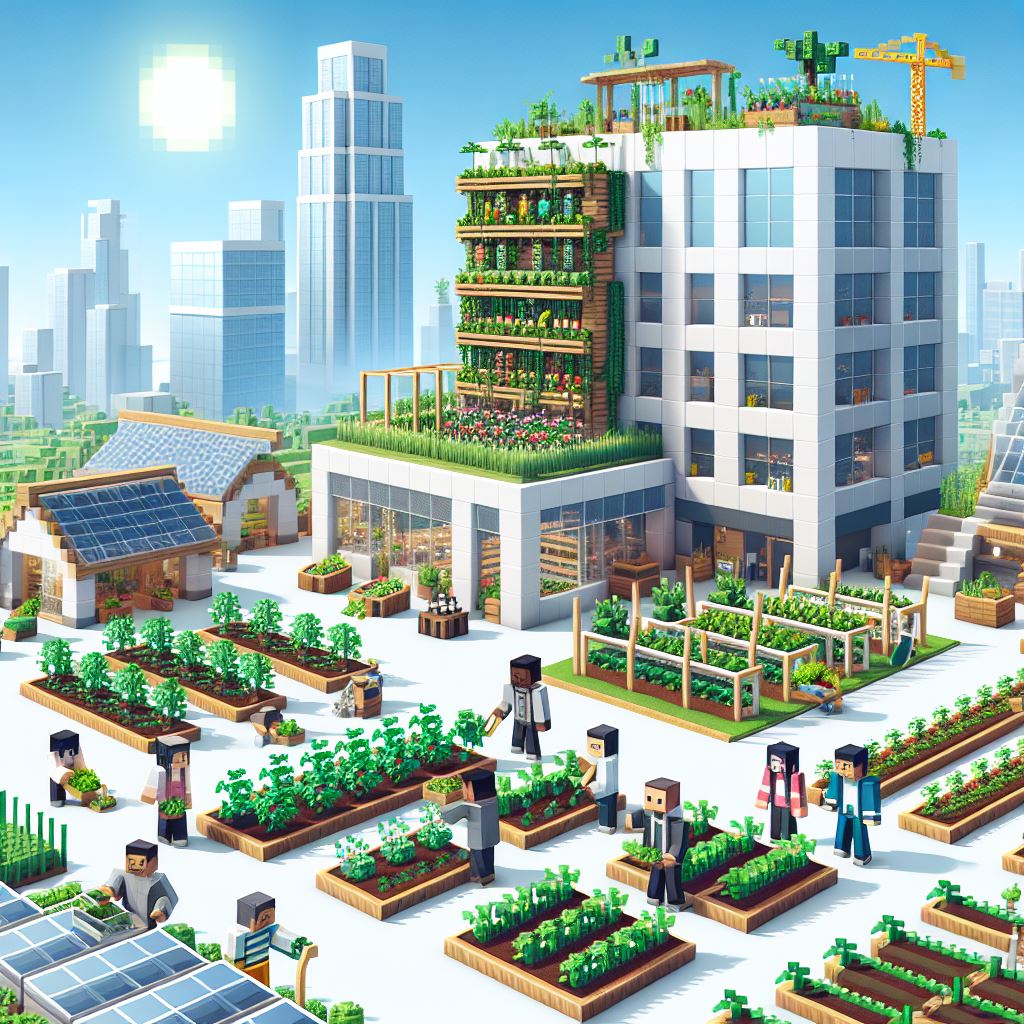
During the competition, participants will receive training in sustainable urban agriculture, effective communication, and the use of Minecraft Education to design innovative solutions.
San Jose, Costa Rica, 3 March 2025 (IICA). The Inter-American Institute for Cooperation on Agriculture (IICA), with support from CEDES Don Bosco and the Farmtastica corporation, is launching the third edition of the Minecraft Education Challenge for Agriculture in Costa Rica, focused on the development of global solutions to produce food sustainably in urban environments through the use of innovative technology and practices.
The competition is targeted at Costa Rican high school students aged 12-18, whose task will be to propose, in the Minecraft world, alternatives to the real, current global challenge of strengthening the design of robust agricultural systems in urban environments.
Specifically, participants will be tasked with finding innovative and efficient ways of producing food in cities and other densely populated areas.
To take part, students must organize themselves in groups of three and register at https://forms.office.com/r/uQa3iZpi9E. The registration period will run from March 3 to 28, or until 50 teams have registered.
The aim of the 2025 Minecraft Education Challenge is to find creative alternatives in the areas of vertical agriculture, the use of technology for food production in small spaces, agriculture on green roofs, flat roofs and balconies, hydroponics and aeroponics in urban environments, community agriculture, and sustainable urban gardens.
During the Challenge, participants will receive training in sustainable agricultural systems in urban environments, the development of effective writing and communication skills, and the use of Minecraft Education to design the best solutions to the challenge set.
With the knowledge acquired and their own research, the students will have the task of developing a solution to the problem chosen for this edition of the Challenge.
According to Farmtastica CEO Maricruz Larrea, urban agriculture is driving innovation that is essential to address some of the challenges currently facing humankind. Connecting communities with the place where their food originates and promoting sustainable solutions are part of the company’s objectives, which is why they decided to participate in the Challenge.
“We are excited to join the Minecraft Challenge with IICA, inviting the student community to unleash their creativity and share their ideas, from which we will also learn. We deeply appreciate this opportunity to join forces to build a greener future and help create the agriculture of tomorrow,” added Larrea.
Ana Carolina Hernández, a psychologist with the Soft Skills Development Unit (UDCB) at CEDES Don Bosco, emphasized that young people who participate in challenges of this kind improve key life skills, such as teamwork, creativity, critical thinking, problem solving, social awareness, empathy, leadership and adaptability.
“Soft skills enhance the impact of solutions developed by students, ensuring a more collaborative, innovative and effective approach. Technology alone is not enough; developing soft skills ensures that solutions created by students are viable, sustainable and people-centered,” concluded Hernández.
Emmanuel Picado, Manager of Information and Communication Technologies and Digital Agriculture at IICA, said that with the launch of the Minecraft Education Challenge, IICA is designed to encourage young people to play a leading role in a more sustainable future, inviting them to design and create innovative technological solutions that transform agriculture.
“This initiative not only strengthens the digital skills of the new generations, but also connects them directly with the real challenges of the agriculture sector, to boost food production and sustainability,” said Emmanuel Picado.
More information: reto@minecraft.iica.int











